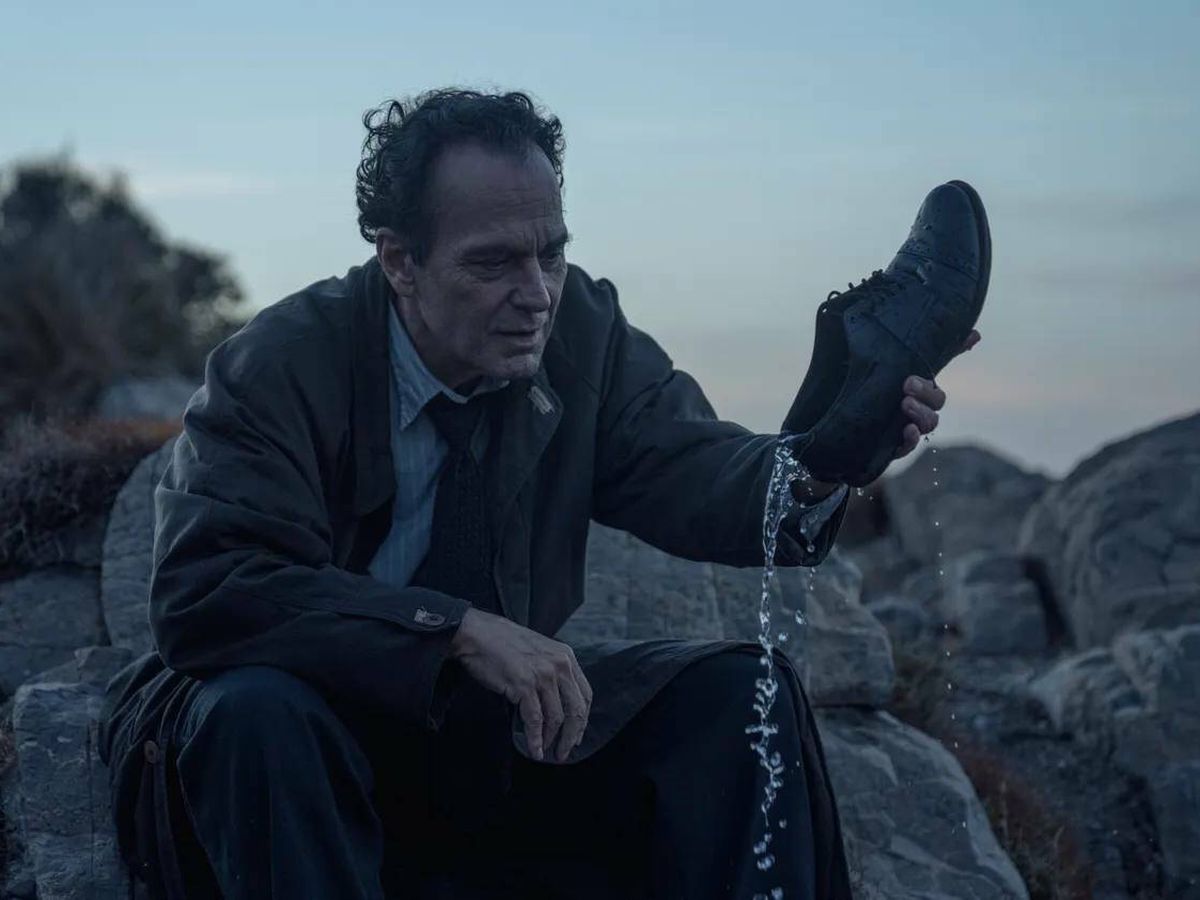
A famous Spanish actor, Julio Arenas, disappears while shooting a film. Although his body is never found, the police conclude that he’s been the victim of an accident by the sea. Many years later, the mystery surrounding his disappearance is brought back into the spotlight by a TV programme outlining his life, and death, and showing exclusive images of the last scenes he filmed, shot by his dear friend, the director Miguel Garay.
EN
“My impression is that, beyond the details of its plot, the story the film wants to portray to the audience revolves around two, intimately connected themes: identity and memory. The memory of two friends, who, once upon a time, were an actor and a movie director. Over time, one has lost his memory completely, to the point that he doesn’t know who he is, or who he was; the other is doing his best to forget, but despite hiding himself away, he finds that the past and its pain still haunt him.
Memory, also contained in the archives of television, a medium that represents like no other the contemporary urge to turn the human experience into a tangible record.
Memory, in short, of the cinematographer: copies safeguarded in tin coffins, far from the movie theatres that saw them come to life, ghosts of a unique story, socially usurped by the Audiovisual. Memory, now long, like the one of the person writing these lines.
The tale that incorporates all these traits comes half from lived experience and half from imagination. As I have worked on the scripts for all my films, it is only natural to assume that the themes they deal with have to do with my most intimate concerns and interests in life, those that belong to the art of poetry, where the experience of watching a movie, and I cannot insist on this enough, becomes a protagonist in its own right.
In this sense, in Close Your Eyes, two different styles of cinema come together: firstly, there is the classic style, with its illusionist norms in terms of atmosphere and characters, and secondly, there is the modern style, which is impregnated with reality. Or, to put it another way, there are two types of story: one which emerges from the shelter of legend, depicting life not so much as it was, but as it should have been; and then, there is a second one, one that is set adrift and contemporary, in which neither memory, nor the future are certain.”
Víctor Erice1
“[...] Close Your Eyes is a tale of farewells, a ‘late film’ in what’s possibly the most literal sense of the term: a director revisiting old ghosts for what may very well be the last time he gets to point the camera at someone. It is soaked in melancholy, nowhere more vividly than in an early rendezvous between Miguel and Julio’s daughter Ana, played by Ana Torrent, the same actress who – forty years ago, aged six – starred as the lead in Erice’s 1973 masterpiece, The Spirit of the Beehive. Erice grants her a monologue that cinematographer Valentín Álvarez shoots in close-up, her face filling the frame almost in its entirety. It’s a scene that, like so many others in Close Your Eyes, doesn’t register as a reunion so much as a goodbye. Yet the film steers clear from cheap treacle and works its way toward an astonishingly invigorating finale. If Kaurismäki lacquers his improbable romance with a myriad of movie posters – some as decor, others as commentary (like a shot of Holappa and Ansa meeting under the watchful gaze of David Lean’s Brief Encounter) – Erice picks fewer, subtler clues, none more revealing than a late nod to Carl Theodor Dreyer, whom one of Miguel’s old collaborators hails as the last director able to yield miracles through film. In an age when the words “a love letter to cinema” have basically turned into ubiquitous, hollow marketing fodder, Close Your Eyes is electrifying proof of the life-affirming and life-preserving power of the medium. This isn’t cinema as escapism; it’s cinema as a memory machine, bearing witness to what André Bazin had called the mummy complex: an embalming of time and space. In a film haunted by recollections and their impermanence, Miguel and Erice wield the camera as a life elixir. For all its nostalgia, Close Your Eyes is the story of a resurrection, and a homage to an art form that can still, per Bazin, ‘snatch our bodily appearance from the flow of time,’ and ‘stow it away neatly, so to speak, in the hold of life.’”
Leonardo Goi2
- 1Víctor Erice, “Director’s Note”.
- 2Leonardo Goi, “Cannes Dispatch: Late Style, New Memories,” Mubi Notebook, 31 May 2023.

